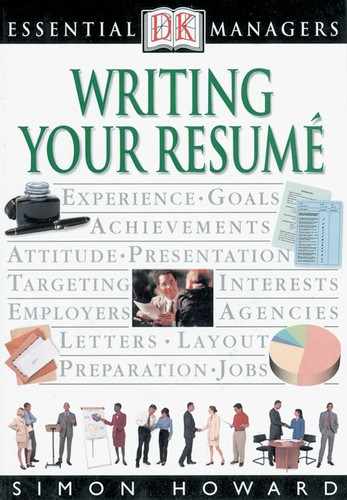Summarizing Education and Training
The achievements you gain through education and training represent both acquired knowledge and your ability to develop. Many employers spend a lot of money on training and are looking to see if you are a person they should invest in.
TIP
Highlight any training undertaken through your own initiative.
TIP
Leave out any exams or courses in which you have been unsuccessful.
Describing education
There is one simple guideline here. The more recent your education, the more complete the description needs to be. At age 23 your educational record will form an important part of your achievements, and will be of significant interest to an employer. However, at age 43 your employment history counts for far more. Your education is, for the most part, of only passing interest. For both educational attainment and professional qualifications, the guideline is that the more recent and more relevant they are to your application, the more complete the description and the earlier they should appear in your resumé. Less recent and less relevant qualifications should be left down or out. Your resumé is your first opportunity to highlight your achievements, so consider heading this section “Qualifications Gained” or “Educational Achievements,” thereby introducing a positive vocabulary.
There are many courses available that you can use to update your IT skills. Initiating your own training shows you are motivated.Keeping up to date

Outlining personal and career development
If you have a formal professional qualification, the details of this need to be included with your educational history. However, unless critical to a particular job application, details of other training do not generally merit an appearance. If using a second page, consider heading a section “professional and personal development.” Under this you could include formal training as well as initiatives you have undertaken that do not carry a degree but are important to your career development.
If you have an impressive record of training courses, you should mention the topics and dates – but limit it to those that are recent and relevant.Training record

TIP
List your academic achievements and career history to date in reverse chronological order.
Do’s and don’ts
Do consider the relevance of your academic record to an employer.
Do include any special citations in exams or courses, if relevant.
Do regularly update your IT skills.
Do make this part of your resumé positive.
Don’t include “purchased” qualifications.
Don’t include “weak” subjects, such as a foreign language.
Don’t include training that has no bearing on an application.
Don’t go into unnecessary detail.
Avoiding overload
Be careful not to let your skills and experience get lost in a resumé that contains much irrelevant information. Space in your resumé is precious, so the following can generally be omitted (unless specifically requested or particularly relevant to your application): health, driver’s license details, social security number, nationality, passport number, place of birth, next of kin, names and ages of your children.
